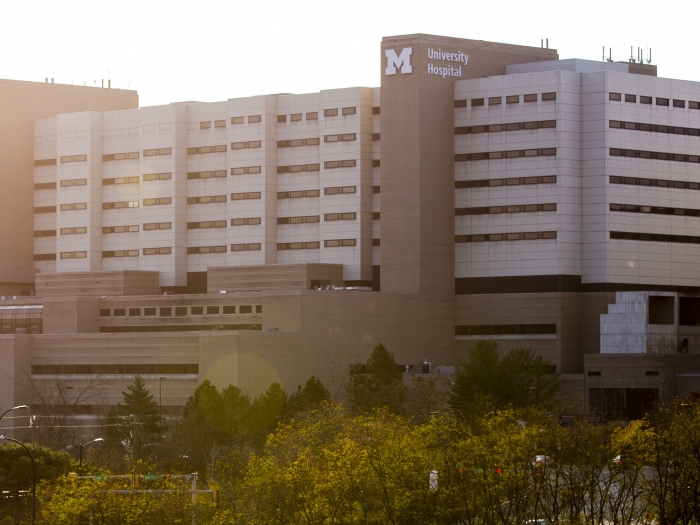A gastroenterologist discusses several non-invasive therapies for treating obesity
5:00 AM
Author |

Over 40% of adults in the United States live with obesity and weight-related health conditions. However, many individuals are unaware of endoscopic bariatric and metabolic therapy, or EBMT, as a minimally invasive method for weight loss.
“Most people think their only options for losing weight are dieting and bariatric surgery,” said Allison Schulman, M.D., M.P.H., who is a gastroenterologist who specializes in bariatric endoscopy at Michigan Medicine. “But there are many other options for those seeking alternative ways to lose weight.”
Here, Schulman speaks about EBMT and its benefits.
What is EBMT?
Schulman: EBMT has been developed to fill the gap between medical and surgical therapy and is a very exciting addition to the treatment arsenal for obesity. While EBMT includes endoscopic procedures that are performed for weight loss, they also appear to improve obesity-related health conditions like high blood pressure, diabetes and liver disease.
The procedures involve the use of a small, flexible scope which is inserted through the mouth. There are interventions on the stomach such as intragastric balloons and endoscopic sleeve gastroplasty, or ESG, and small bowel interventions which are currently in clinical trials.
What are some of the benefits of these forms of therapy?
Schulman: EBMT is less invasive than surgery, as these procedures are performed through the mouth. The complication rate is very low.
In addition, the procedures are routinely performed as outpatient procedures, which means that patients will traditionally go home the same day that they come in. There is no need for overnight observation.
SEE ALSO: New Endoscopic Procedures Offer Alternative Paths to Weight Loss (michiganmedicine.org)
Another benefit of EBMT is that these interventions can be repeated if desired. Since these procedures do not require skin incisions and do not lead to internal adhesions, it is easier to repeat a procedure if warranted.
Who can be considered for EBMT?
Schulman: Generally, patients with obesity are candidates for EBMT. There are a few device-specific exclusions. For example, individuals with prior esophageal or stomach surgery cannot undergo balloon placement, but they can be candidates for endoscopic sleeves. So, it is very important to individualize care.
These procedures can also be offered as a bridge to other interventions. For example, sometimes patients who are not candidates for bariatric surgery, or who may not want a surgical procedure, need to lose weight before being considered a candidate for a knee replacement or listed for an organ transplantation.
However, we must think critically about when to offer these procedures in higher risk populations such as those with significant liver scarring or other major medical conditions.
Is there anything else worth mentioning about these weight loss interventions?
Schulman: The two most common EBMTs and the ones we offer at Michigan Medicine are the intragastric balloon and ESG.
The intragastric balloon is a temporary, space-occupying device that is filled with fluid. It resides in the stomach for six months and then is removed, so it does not cause any permanent changes to the shape and/or lining of the stomach.
SEE ALSO: 'All Is Better’ After Minimally Invasive Weight Loss Procedure (michiganmedicine.org)
ESG is our most popular procedure. This procedure is performed using an endoscopic suturing device. Stitches are placed along the greater curvature of the stomach, leading to gastric remodeling, and reducing the volume of the stomach by approximately 70%.
Both procedures are performed for primary weight loss in individuals who have not undergone other procedures to lose weight. However, we also offer techniques to help with weight loss in patients who have regained weight after bariatric surgery.
Perhaps the most important thing worth mentioning is that we offer these procedures as a part of a year-long multidisciplinary program, as we feel that this comprehensive approach to weight loss is better for patient care.
We have an incredible team, and I am extremely grateful to be a part of it.

Explore a variety of health care news & stories by visiting the Health Lab home page for more articles.

Department of Communication at Michigan Medicine
Want top health & research news weekly? Sign up for Health Lab’s newsletters today!





